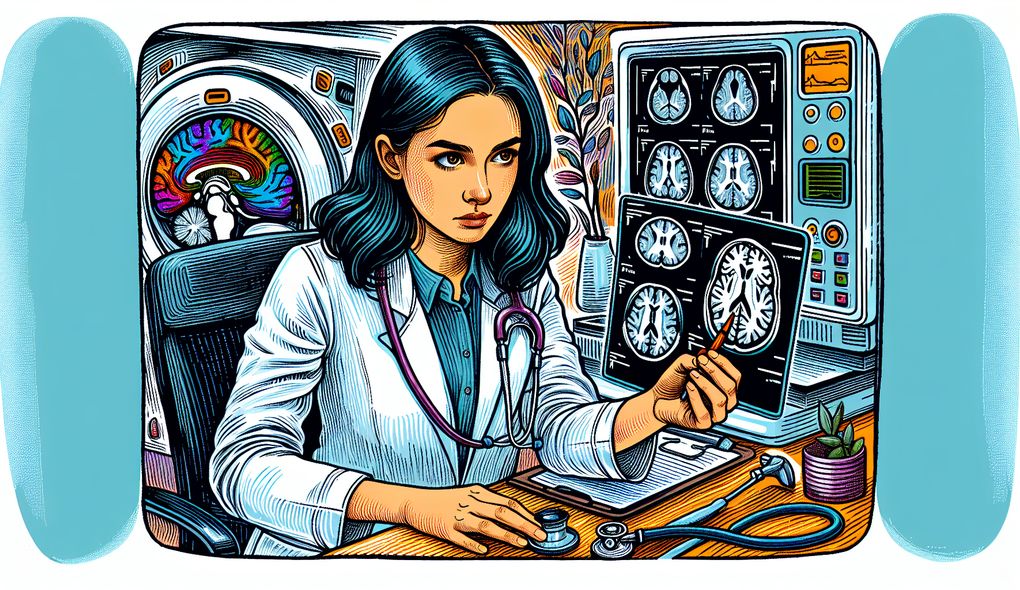What steps do you take to ensure patient safety in a neurological setting?
INTERMEDIATE LEVEL

Sample answer to the question:
In a neurological setting, I take several steps to ensure patient safety. Firstly, I gather a comprehensive medical history to understand the patient's condition and any potential risks. I also conduct thorough neurological assessments to monitor their progress. Additionally, I collaborate closely with the healthcare team to ensure integrated care and communicate any concerns. I am proficient in electronic medical records and healthcare IT systems, which helps me track and manage patient information efficiently. Furthermore, I stay up-to-date with advancements in neurology and related nursing practices to provide the best care possible. Overall, my goal is to prioritize patient safety at all times.
Here is a more solid answer:
Ensuring patient safety in a neurological setting is of utmost importance to me. Firstly, I prioritize effective communication with patients and their families to establish trust and understanding. I actively listen to their concerns and address any questions they may have. Secondly, I conduct thorough assessments to track their progress and identify any potential risks or complications. Critical thinking plays a key role in analyzing the data and making evidence-based decisions. Additionally, I collaborate closely with the healthcare team, including neurologists, nurses, and therapists, to ensure integrated and comprehensive care. I am proficient in electronic medical records, which allows me to efficiently document and review patient information. Moreover, I actively seek opportunities for professional development by attending conferences and staying updated with the latest research in neurology nursing. Finally, as a leader, I strive to mentor and support my colleagues, fostering a positive and safe environment for both patients and healthcare professionals.
Why is this a more solid answer?
The solid answer provides a more comprehensive response by highlighting specific steps taken to ensure patient safety. It emphasizes effective communication with patients and families, thorough assessments, critical thinking, collaboration with the healthcare team, proficiency in electronic medical records, commitment to professional development, and leadership skills. The answer demonstrates the candidate's ability to meet the evaluation areas mentioned in the job description. However, it can be further improved by providing examples or anecdotes to illustrate the candidate's proficiency in the mentioned areas.
An example of a exceptional answer:
Patient safety is my top priority in a neurological setting. To ensure this, I implement a multi-faceted approach. Firstly, I establish a strong rapport with patients and their families by providing empathetic and compassionate care. This facilitates open communication and allows me to address any concerns promptly. Secondly, I am adept at conducting comprehensive neurological assessments, employing advanced techniques and tools to gather accurate data. This enables me to identify subtle changes in patient conditions and intervene proactively. Furthermore, I actively participate in interdisciplinary team meetings to discuss individual care plans and coordinate efforts. By leveraging my exceptional communication and critical thinking skills, I contribute to the development of effective treatment strategies. My proficiency in electronic medical records and healthcare IT systems enhances patient safety by ensuring accurate and accessible documentation. To stay abreast of advancements, I engage in continuous professional development through conferences and workshops, enabling me to implement evidence-based practices. Lastly, as a leader, I mentor and inspire nursing staff, promoting patient safety through education and empowerment.
Why is this an exceptional answer?
The exceptional answer goes above and beyond by providing a detailed and comprehensive response. It showcases the candidate's skills in areas such as empathy, advanced neurological assessments, interdisciplinary collaboration, exceptional communication and critical thinking, proficiency in electronic medical records, commitment to professional development, and leadership. The answer demonstrates a strong understanding of the job responsibilities and the importance of patient safety. It also showcases the candidate's ability to go the extra mile to ensure the highest level of care. The answer is well-structured and includes specific details to support each point. It leaves a lasting impression on the interviewer and highlights the candidate's suitability for the role.
How to prepare for this question:
- Review and refresh your knowledge of neurological disorders, their symptoms, and treatment options.
- Research best practices for patient safety in a neurological setting and familiarize yourself with relevant guidelines and protocols.
- Think of specific examples from your past experiences where you prioritized patient safety and demonstrate your ability to implement safety measures.
- Practice answering questions related to communication, critical thinking, collaboration, and leadership.
- Stay up-to-date with advancements in neurology nursing through relevant journals, research articles, and conferences.
- Reflect on your past experiences as a nurse practitioner and identify areas for improvement in terms of patient safety.
What are interviewers evaluating with this question?
- Clinical skills in neurology and patient care
- Communication and interpersonal skills
- Critical thinking and problem-solving abilities
- Proficiency in electronic medical records and healthcare IT systems
- Ability to work collaboratively in a multidisciplinary team environment
- Leadership and mentoring skills
- Commitment to continuing education and professional development

